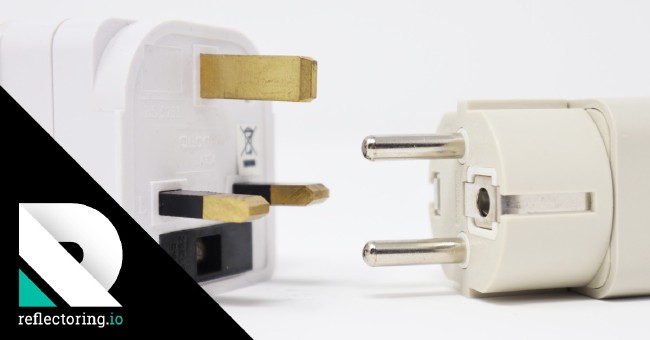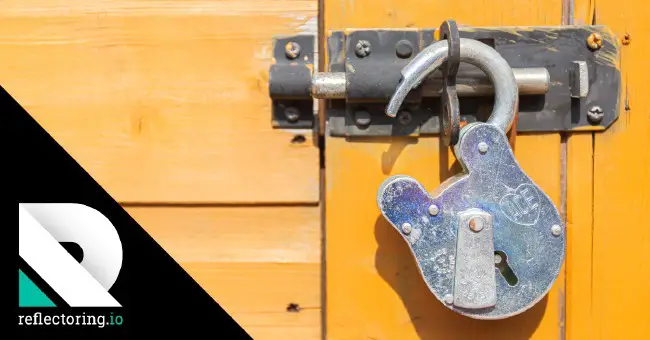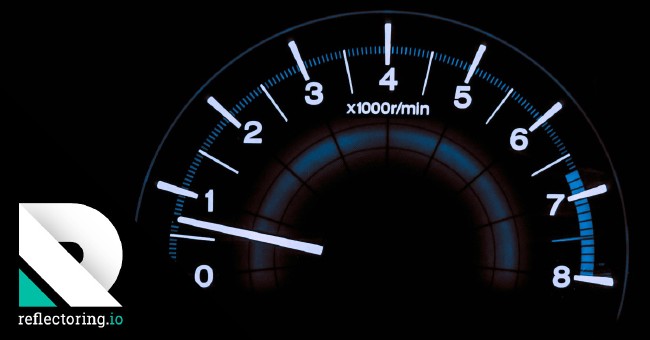TL;DR: Read this Book, when…
- you want to make time for important things
- you want to replace busyness with meaningful tasks
- you want to try out a framework to change your defaults (habits)
Book Facts
- Title: Make Time
- Authors: Jake Knapp and John Zeratsky
- Word Count: ~ 60.000 (4 hours at 250 words / minute)
- Reading Ease: easy
- Writing Style: conversational, very short chapters, actionable
Overview
{% include book-link.html book=“make-time” %} is a book by two ex-Silicon Valley workers who created a framework to get the most joy out of their (work) days. This framework they call “Make Time”, because it helps to reduce busyness and thus make time for the important things.
The authors are the creators of the “Design Sprint” methodology, in which a team takes a week of time to create solutions for problems in a structured manner. In the Design Sprints they conducted they came up with tactics to make time for meaningful work and translated that into the “Make Time” framework.
The framework consists of these steps:
- pick a highlight for the day,
- laser-focus on that highlight for a given time,
- energize to keep your body in a state in which it can concentrate, and
- reflect on what you’ve been doing to improve in the future.
Most of the book is a collection of tactics you can choose from to implement each of those steps.
It’s written in a very readable manner, I went through it in about two weeks of 20-30 minute lunch breaks. The chapters are very short, some only a paragraph or two, which - ironically - makes it snackable even when you don’t make much time for reading.
Notes
Here are my notes, as usual with some comments in italics.
Introduction
- by default, we let our calendars be filled with busyness instead of work that is meaningful to us
- we operate between the “Busy Bandwagon” of busyness and the “Infinity Pools” of distraction (social media, email, …)
- overcoming the Busy Bandwagon and Infinity Pools with willpower or productivity doesn’t work - you need a system, a framework, a habit (James Clear, the author of “Atomic Habits” would agree)
- lessons from conducting Design Sprints:
- highlight: have one high-priority goal for the day
- laser: ban devices to get people more involved
- energize: take breaks and take a walk to stay energized
- reflect: perform experiments to find out what works and what doesn’t
Highlight
- a daily highlight is something between a fine-grained task (that takes minutes to solve) and a long-term goal (that takes weeks to reach)
- a highlight helps to be intentional with your allocation of attention
- select your daily highlight out of these categories:
- what is urgent?
- what brings satisfaction?
- what brings joy?
- “You only waste time if you’re not intentional on how to spend it.”
- a time frame of 60 to 90 minutes is the sweet spot for a daily highlight
Choose Your Highlight
- Write It Down - to keep the highlight in mind and help you be intentional with your allocation of attention
- Groundhog It - repeat yesterday’s highlight if it’s not finished yet, or brought you joy
- Stack Rank Your Life - prioritize the big themes in your life and use this list to choose a highlight
- Batch the Little Stuff - make a batch of small tasks your highlight
- The Might-Do List - have a list of options and choose a highlight from it
- The Burner List - select the most and second most important projects and put their todos on a piece of paper in two columns (“front burner” for the first, and “back burner” for the second project) - recreate this list every couple of days
- Personal Sprint - schedule several days in a row for the same project to stay in the context
Make Time for Your Highlight
- Schedule Your Highlight - to commit yourself
- Block Your Calendar - block the time you’re most productive and then be intentional with the blocked time
- Bulldoze Your Calendar - compress or move meetings to get more highlight time
- Flake It Till You Make It - bail out on a commitment to make time for your highlight (but don’t make this your default)
- Just Say No - decline commitments that you’re not likely going to keep and which would steal away your highlight time
- Design Your Day - plan your day in detail so you can concentrate on how to do things instead of thinking about what to do
- Become a Morning Person - make a habit of getting up early to make time for your highlight in the early hours (I can confirm that this works - I have trained myself to be a morning person two years ago, and it has allowed me to write a book, multiply the traffic on my blog, work a 9-to-5 day job, and still spend time with my family in the evenings)
- Nighttime is Highlight Time - design your nighttime before bed as highlight time (This doesn’t work for me because I’m too tired after my day job)
- Quit When You’re Done - stop before you’re exhausted so you’re fresh the next day
Laser
- once you’ve selected a highlight, work on it in a laser-focused mode
- “Distracted has become the new default.”
- “Willpower is not enough to protect your focus.”
- today’s Infinity Pools are very effective because they’re made to be
- “If you want control, you have to redesign your relationship with technology.”
- “The best way to defeat distraction is to make it harder to react.”
- it can take days to get “into the zone” for a certain task - distractions wreak havoc with your focus! (I can relate to that - when I’m writing on a book chapter or a longer blog post, I usually work on it an hour in the morning and only after a couple of days have I reached a state of “flow” where I can write almost effortlessly - sadly, the chapter or blog post is almost done, by then :))
Be The Boss Of Your Phone
- Try a Distraction-Free Phone - experiment with uninstalling distracting apps from your phone
- Log Out - log out of the apps that consume your time to make it a hassle to log back in
- Nix Notifications - turn off notifications
- Clear Your Homescreen - put everything on screens right and left from the home screen to add more friction
- Wear a Wrist Watch - so you don’t need to look at your phone to know the time
- Leave Devices Behind - put your phone into a drawer to add friction
Stay Out of Infinity Pools
- Skip the Morning Check-In - don’t check email or news in the morning to avoid distraction (Once I stopped checking the news and my email first thing in the morning, I won at least 20 minutes of highlight time every morning!)
- Block Distraction Kryptonite - if you feel regret after spending a couple of minutes on a distraction, it’s kryptonite - block it
- Ignore the News - read the news weekly instead of daily
- Put Your Toys Away - clean the desktop, sign out of apps, close browser tabs to avoid distractions the next day (I hate that, by default, IntelliJ opens all the projects I’ve been working on yesterday and that all my browser tabs are still there)
- Fly Without Wi-Fi - when flying in a plane, turn off the Wi-Fi to get some focus time
- Put a Timer on the Internet - to remove the potential distraction during highlight time
- Cancel the Internet - completely get rid of an internet connection in your house and use your phones mobile data instead, which adds more friction (oh, how my kids would hate me for that)
- Watch Out for Time Craters - interruptions through social media and anticipation of meetings put craters in your calendar - move them around so they don’t affect so much of the day (*when I know a meeting is coming up in 30 minutes, my brain gets blocked - I try to batch such meetings into the afternoon when I’m not that productive for deep work anyways)
- Trade Fake Wins for Real Wins - many “wins” we feel are fake (like going through email) - only the highlight time is a real win
- Become a Fair-Weather Fan - if being a sports fan consumes a lot of your time, reduce this time to make things for other joyful highlights
Slow Your Inbox
- Deal with Email at the End of the Day - you’ll have less energy and won’t overcommit when answering emails (the probability of you saying “no” is bigger)
- Schedule Email Time - block some time in your calendar to go through email to have peace of mind because you know you’ll be getting to it eventually
- Empty Your Inbox Once a Week - to avoid the stress of daily “Inbox Zero”
- Pretend Messages are Letters - paper letters are only delivered once a day and for most emails that’s fine, too
- Be Slow to Respond - everybody can reach you digitally - you don’t want to be at the beck and call of internet strangers!
- Reset Expectations - train your co-workers that you’re slow to respond to take pressure off yourself
- Set Up Send-Only Mail - configure your mail so that you can send email without looking into the inbox, which is the ultimate Infinity Pool
- Vacation off the Grid - turn off internet access when you leave for a vacation
- Lock Yourself Out - lock internet/email on your devices for given periods of time
Make TV a Sometimes Treat
- “If you’re constantly exposed to other people’s ideas, it can be tough to think up your own.”
- Don’t Watch the News - TV news are made to be attention-seeking - better read the news than watch them
- Put Your TV in the Corner - rearrange your living room so that the TV is not the center of it
- Ditch your TV for a Projector - a projector is more hassle to set up so it will be reserved for special events
- Go A-La-Carte Instead of Always On - cancel streaming subscriptions and rent episodes one at a time to change the default
- If You Love Something, Set it Free - ditch your TV completely for a month and then recap what you did with the time you won
Find Flow
- Shut the Door - or put headphones on to avoid interruptions
- Invent a Deadline - for example, register for a running event before you’re prepared for it to create some (positive) pressure
- Play a Laser Soundtrack - choose a song to play each highlight time to trigger a focus habit
- Set a Visible Timer - use a timer to make conscious how important the highlight is
- Avoid the Lure of Fancy Tools - avoid time management tools because they’re potentially fragile - instead, go with pen & paper (I use simple Trello boards - one for work and one for my other projects - to collect and sort my tasks)
- Start on Paper - instead of diving into digital tools because you can do pretty much anything on paper
- Explode Your Highlight - cut it into many small, completable tasks to generate flow (This is a major tactic I use to unblock myself - if I have a list of very doable tasks, I don’t need to think about what to do anymore, I just tick off those tasks one by one)
Stay in the Zone
- Make a “Random Question” List - during highlight time, write down anything that comes to your mind that might distract you on a piece of paper to have peace of mind that it will be attended to after your highlight time is over
- Notice One Breath - breathe in and out a couple of times to regain focus
- Be Bored - to give your mind a chance to wander (this increases creativity, see the “R-Mode” in “Pragmatic Thinking and Learning”)
- Be Stuck - instead of “fleeing” into email or other distractions, stare at the blank screen for a bit and let your mind mull the problem unconsciously
- Take a Day Off - to recharge if other things don’t work
- Go All In - attack your highlight wholeheartedly / let down your guards to create focus (when I consider something a chore or not worth my time, but I still have to do it, I’m spending far too much time on it, during which I feel miserable - once I go “all-in”, I’m focused, feel better, and get it done much faster)
Energize
- “If you want energy for your brain, you need to take care of your body.”
- we’re wired for a life of constant movement, a varied diet, and restful sleep from way back when we were hunting mammoths
- Exercise Every Day - “go small and go every day” to stimulate your brain and general well-being
- “There is more to you than how you sweat” - don’t think that you have to do only big workouts
- Pound the Pavement - switch the default from “drive when possible” to “walk when possible”
- Inconvenience Yourself - instead of avoiding some inconveniences, embrace them to keep moving
- Squeeze in a Super Short Workout - a couple of minutes of intense workout are better than an hour of medium intensity workout
Eat Real Food
- Eat Like a Hunter-Gatherer - eat non-processed food
- Central Park Your Plate - put salad on your plate before anything else
- Stay Hungry - skip a meal now and then to stay sharp
- Snack Like a Toddler - make high-quality snacks available throughout the day (like fruit or nuts, not chips and sweets)
- Go on the Dark Chocolate Plan - dark chocolate contains caffeine and less sugar than normal chocolate, so it doesn’t create that much of a sugar crash afterward
Optimize Caffeine
- caffeine doesn’t give an energy boost, it blocks an energy dip
- Wake Up Before You Caffeinate - drink the first cup of coffee no sooner than around 9.30 to avoid withdrawal symptoms
- Caffeinate Before You Crash - have coffee 30 minutes before you usually crash
- Take a Caffeine Nap - drink a coffee and immediately take a 15-minute nap to get a boost
- Turbo Your Highlight - have a coffee right before you start your highlight session
- Learn Your Last Call - if not sleeping well, chances are you’re having your last coffee too late
- Disconnect Sugar - don’t mix sugar with coffee because sugar causes a sugar crash
Go Off the Grid
- Get Woodsy - take a walk in the forest or park to replenish (I have started the habit of going for a walk through a nearby wood every morning before work and I do feel better overall)
- Trick Yourself into Meditating - try a guided meditation app
- Leave Your Headphones at Home - to allow some time for boredom
- Take Real Breaks - don’t waste breaks on social media of TV, change the default to something else
Make it Personal
- Spend Time With Your Tribe - have real conversations with people who give you energy
- Eat Without Screens - to recharge while eating
Sleep in a Cave
- Make Your Bedroom a Bed Room (oh how I had to fight to get the TV out of our bedroom)
- “It’s easier to change your environment than to rely on willpower to change your behavior.”
- Fake the Sunset - turn down lights in the evening and turn them back up in the morning to simulate the sun and trick the brain into sleep or wake mode
- Sneak a Nap - napping makes you smarter!
- Don’t Jet-Lag Yourself - don’t build up “sleep debt”, but don’t try to repay it by sleeping long, either - get up at the same time every day
- Put On Your Own Oxygen Mask First - if you don’t take care of yourself first, you won’t have the energy to take care of others who might depend on you
Reflect
- every day, reflect on the day to check
- how focused were you?
- how energized were you?
- did you make time for your highlight?
- which tactics did you try?
- which tactics do you want to try tomorrow?
Conclusion
I liked the book a lot. While many of the tactics are not groundbreaking news, the simple act of choosing a highlight for the day has a lot of potential, I believe.
Also, I haven’t really been scientific about what helps me concentrate and what doesn’t. I’ll try out reflecting on that every evening to get a sense of what works and what doesn’t.
This is a very actionable book that I can recommend for every knowledge worker out there.



